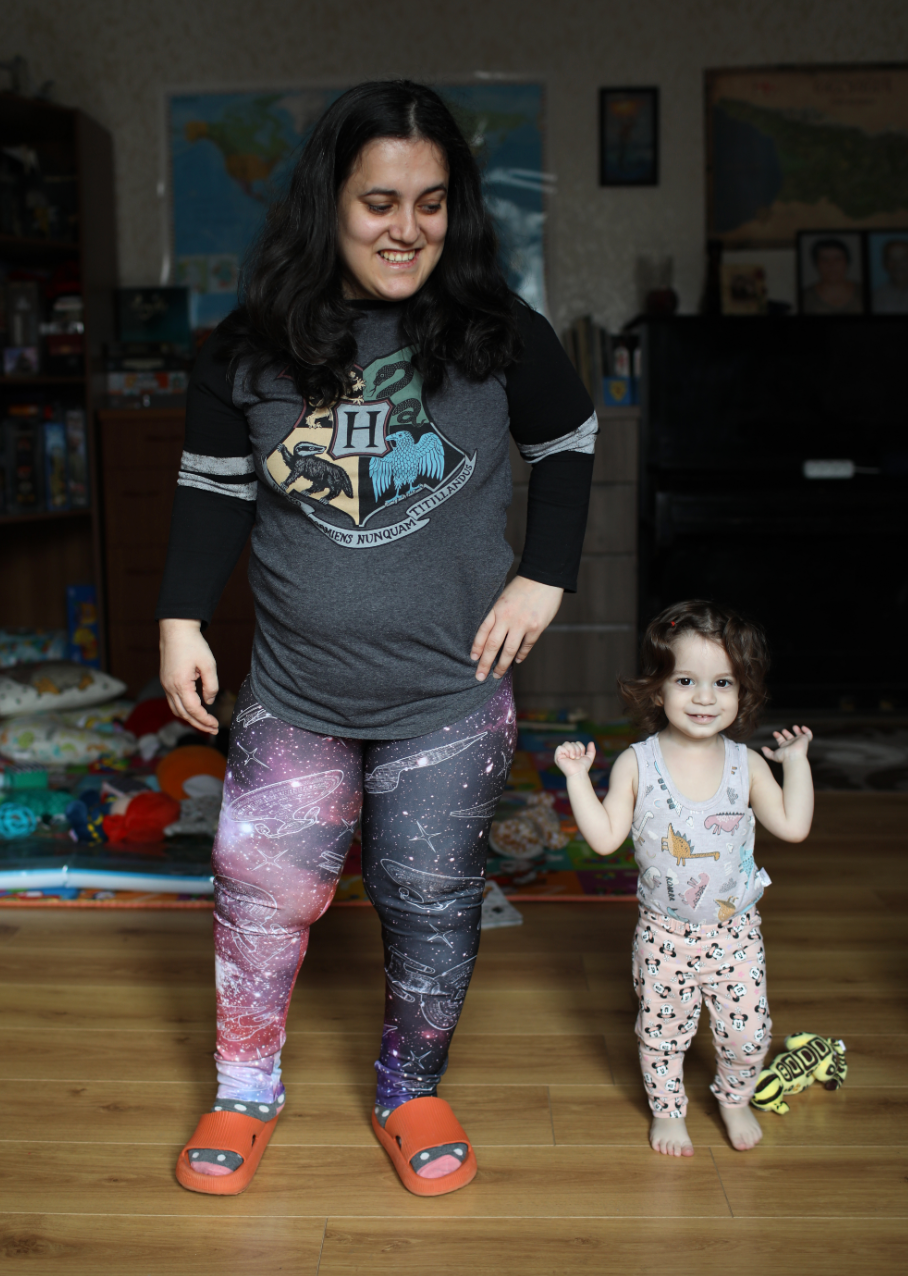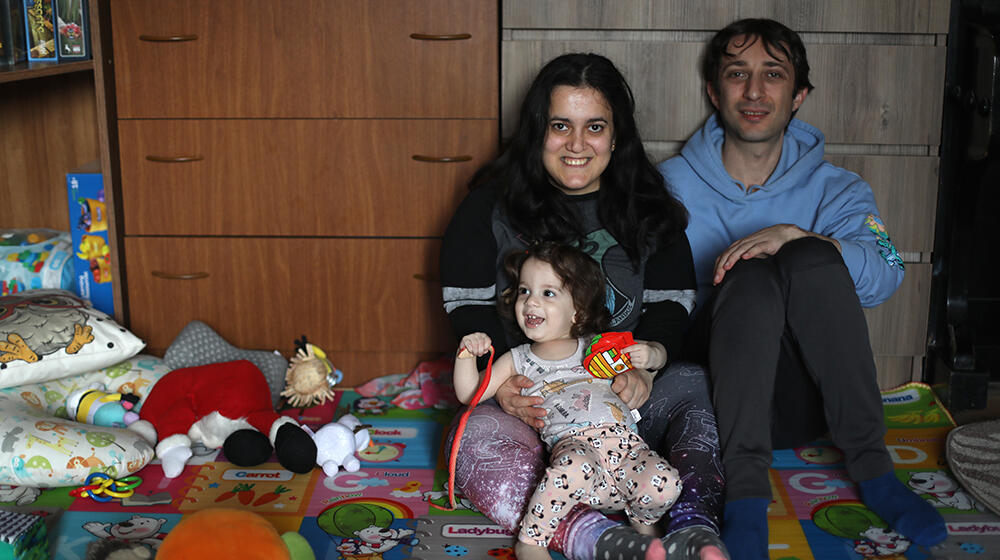Meet people from across the region living and working with disabilities. We'll be adding a new short story every week in October and November.
Ludmila, Moldova
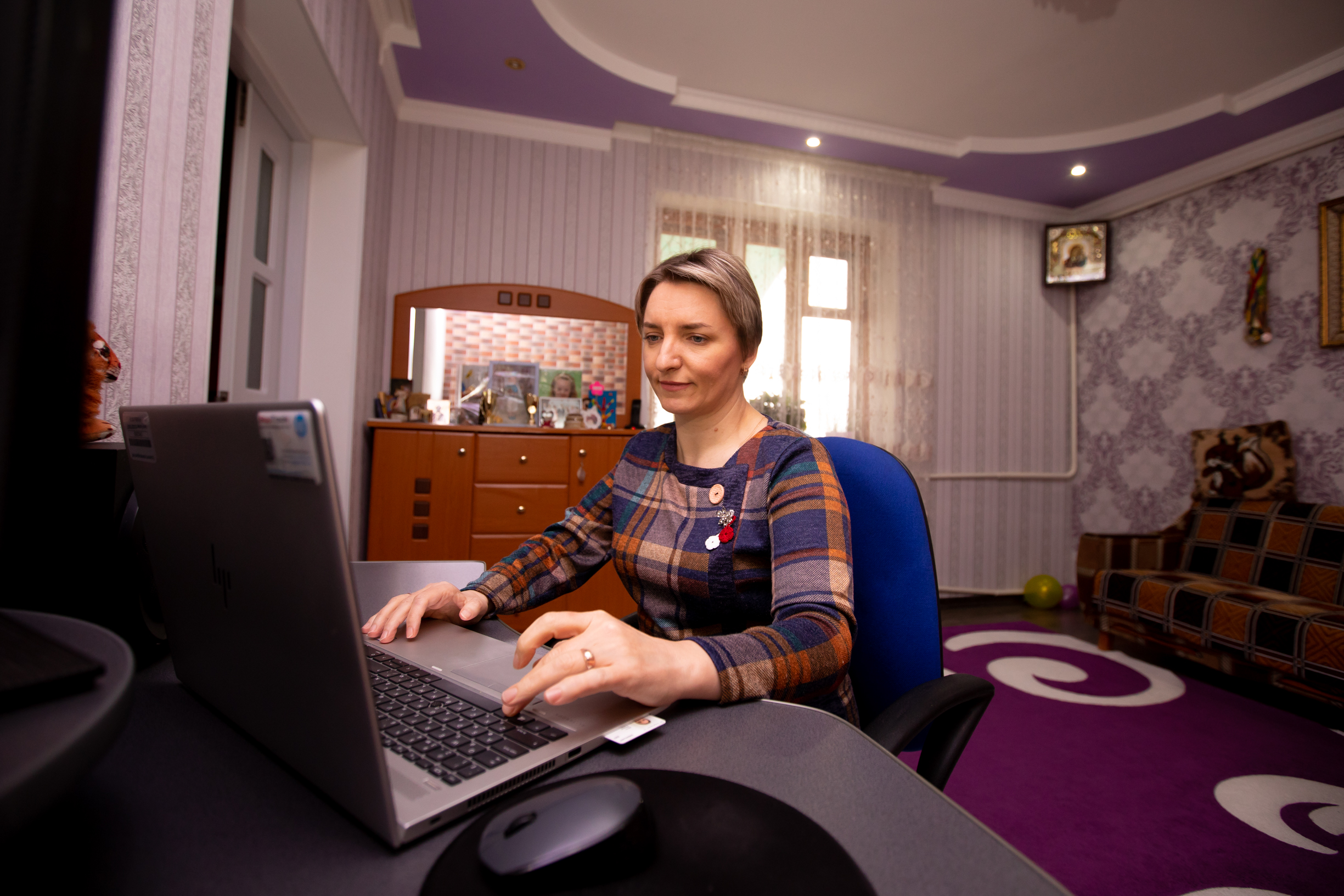
“It is a real challenge for people with disabilities to work in Moldova,” Ludmila David is 44 years old and a widowed mother of two. She has polio and uses a walking stick. “If you compare the situation of our peers in other countries, access for people with disabilities still lacks a lot in our country.”
In 2019, Ludmila moved from Floreni to the capital Chisinau to work as a customer agent operator at the telecommunications company, Orange.
“I was glad that I could get a job because it made me feel useful to our society and financially independent.”
She was pleased to discover that the workplace was designed with the needs of people with disabilities in mind.
“From the beginning, I was excited about the office climate and the high level of accessibility for persons with special needs. I was also charmed by my gentle colleagues. They encourage persons with disabilities to work and develop.”
However, Ludmila says some people in society still stereotype persons with disabilities.
“People definitely have stereotypes and prejudices towards people with disabilities. They don’t think a person with a disability can carry out a responsibility."
In contrast, she says that her office colleagues are very positive and she believes people with disabilities are an asset to the workplace and society.
“I am glad that I haven’t felt discriminated against at work, but I also want to mention that I am interested in doing my job well. Employees with disabilities don’t tarnish the image of the employer. On the contrary, they add value and contribute to promoting and developing the company. I am glad that our company gives us this opportunity.”
As for family-friendly workplace policies in Moldova, Ludmila thinks they are a good move.
“I think that it is good to implement such policies. They would encourage more women, including women with disabilities, to be more active in the labour market and have more freedom to work even if they have children.”
Orange Moldova is a champion company partnering with UNFPA to promote Family-Friendly Workplaces under the regional Expanding Choices project, funded by the Austrian Development Cooperation.
Nicolae, Moldova
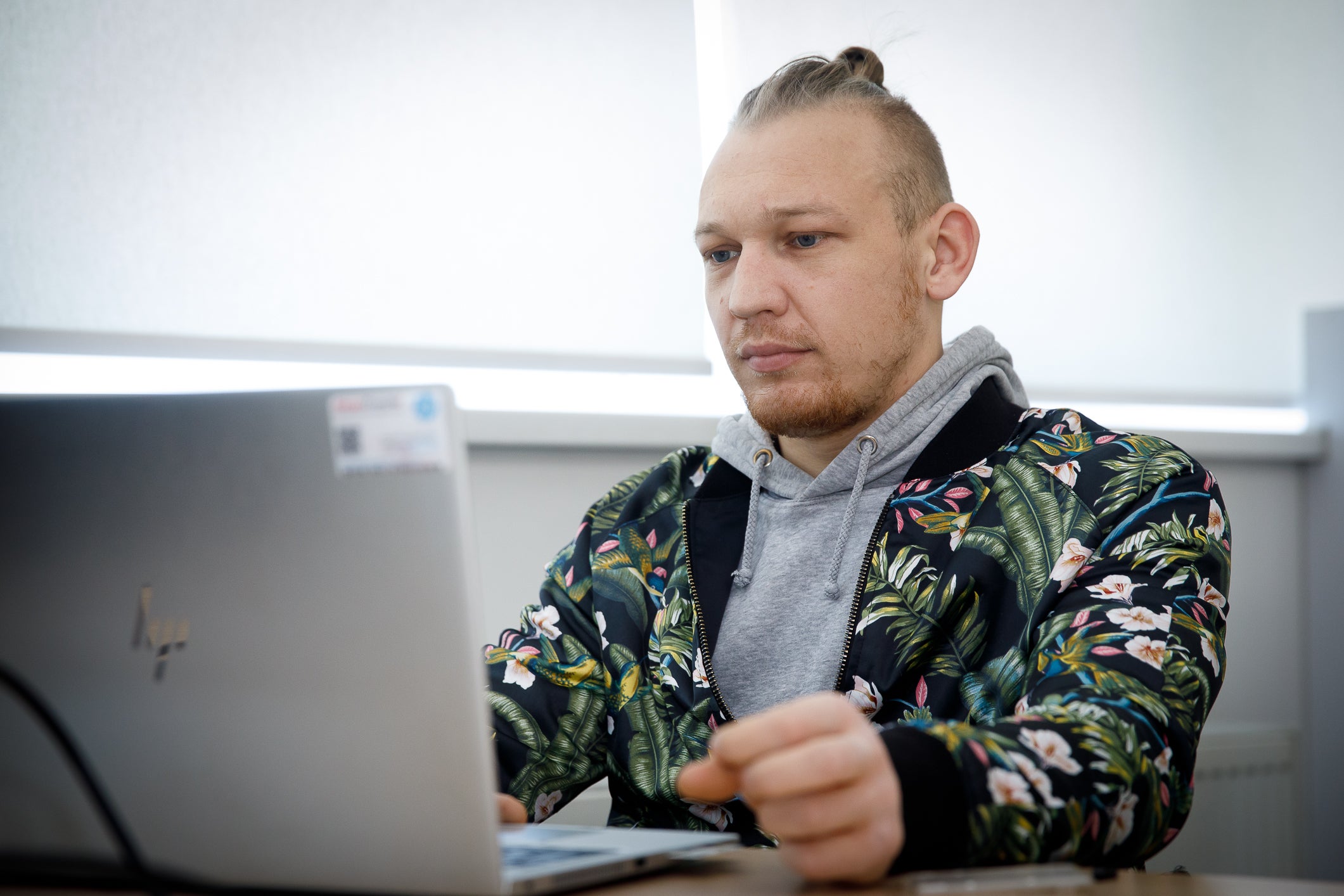
Nicolae Mironov is 27 years old, comes from Hincesti, southwest of Chisinau, the capital of Moldova, and he uses a wheelchair. He started work as a customer agent operator at Orange in Chisinau in 2019.
“I appreciate the employer’s openness to offer me the opportunity to be part of a team and I feel equal to others,” said Nicolae. “It’s important for me that the employer always gives us the opportunity to participate in certain development training to improve our knowledge and skills in terms of our personal capacities and potential. This makes me gain new experiences and feel like a really useful employee.”
When Nicolae joined Orange, he noticed that the workplace had already been adapted to wheelchair users.
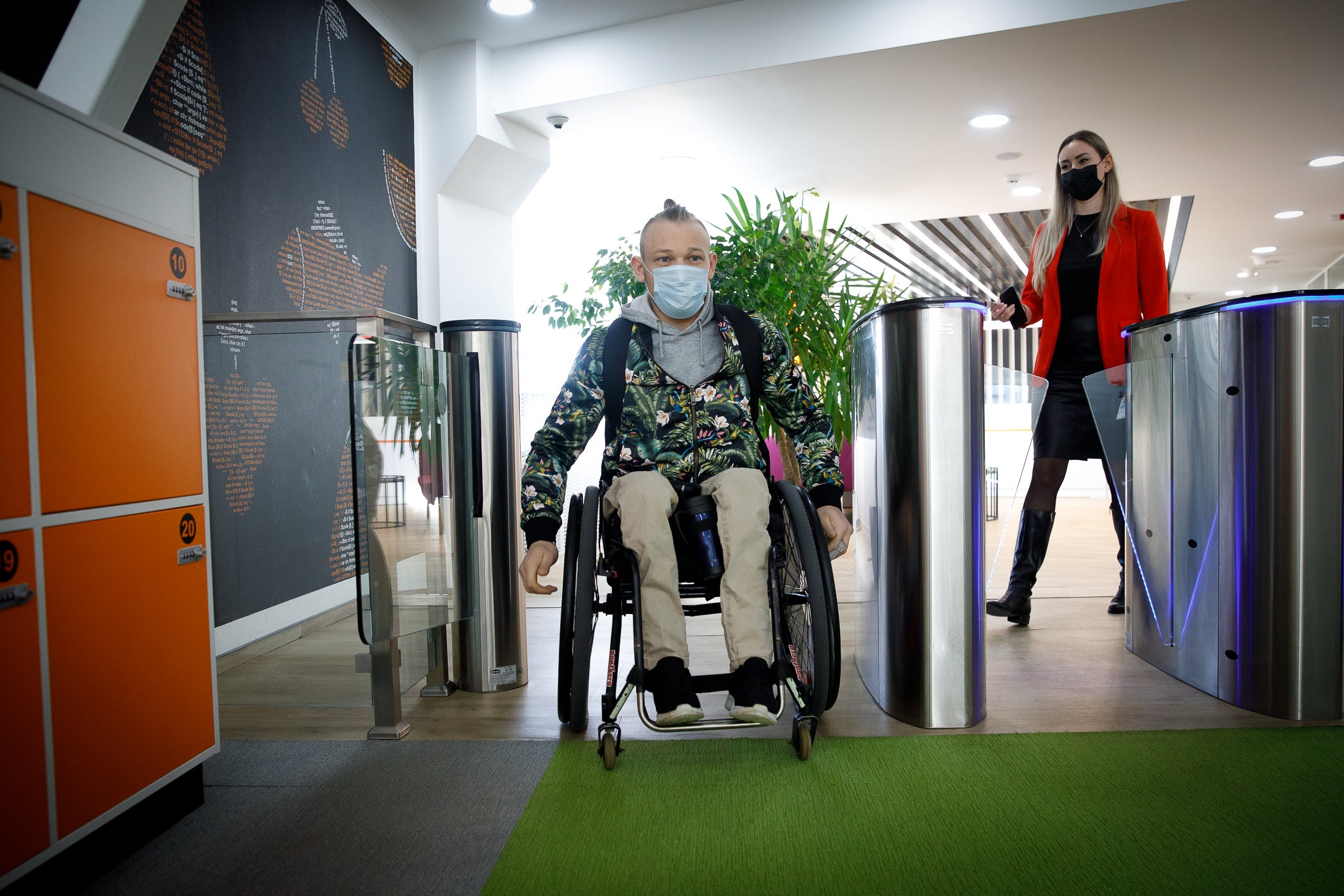
“The office was fully accessible for people with disabilities. This surprised me, because I had never seen this during previous interviews at other institutions I had visited.”
Nicolae says stereotypes of people who live with a disability in Moldova can hold people back, but it is not a problem he has experienced in the workplace.
“There may still be a few stereotypes left in our society, but I am glad that they are gradually disappearing. People with disabilities should not be labelled as people at the mercy of the state. In the team I am part of, I haven’t felt any stereotypes or prejudices from my colleagues or the employer.”
Nicolae has some hobbies which may surprise more able bodied people.
“I had the opportunity to fly a small plane,” he said. “It was a wonderful life experience. Then I took part in a 10 km marathon. I have also participated in various competitions such as paralympic powerlifting. I also like vlogging about my life and I even made a short film.”
He dreams of a time when people living with disabilities can be accepted in all walks of life.
“My biggest hope is that everything will be accessible in the future and we will no longer feel the difference when we speak about people with disabilities and those with full abilities. I still hope to start a family in the near future, to be happy and to skydive.”
Orange Moldova is a champion company partnering with UNFPA to promote Family-Friendly Workplaces under the regional Expanding Choices project, funded by the Austrian Development Cooperation
Mariana, Moldova
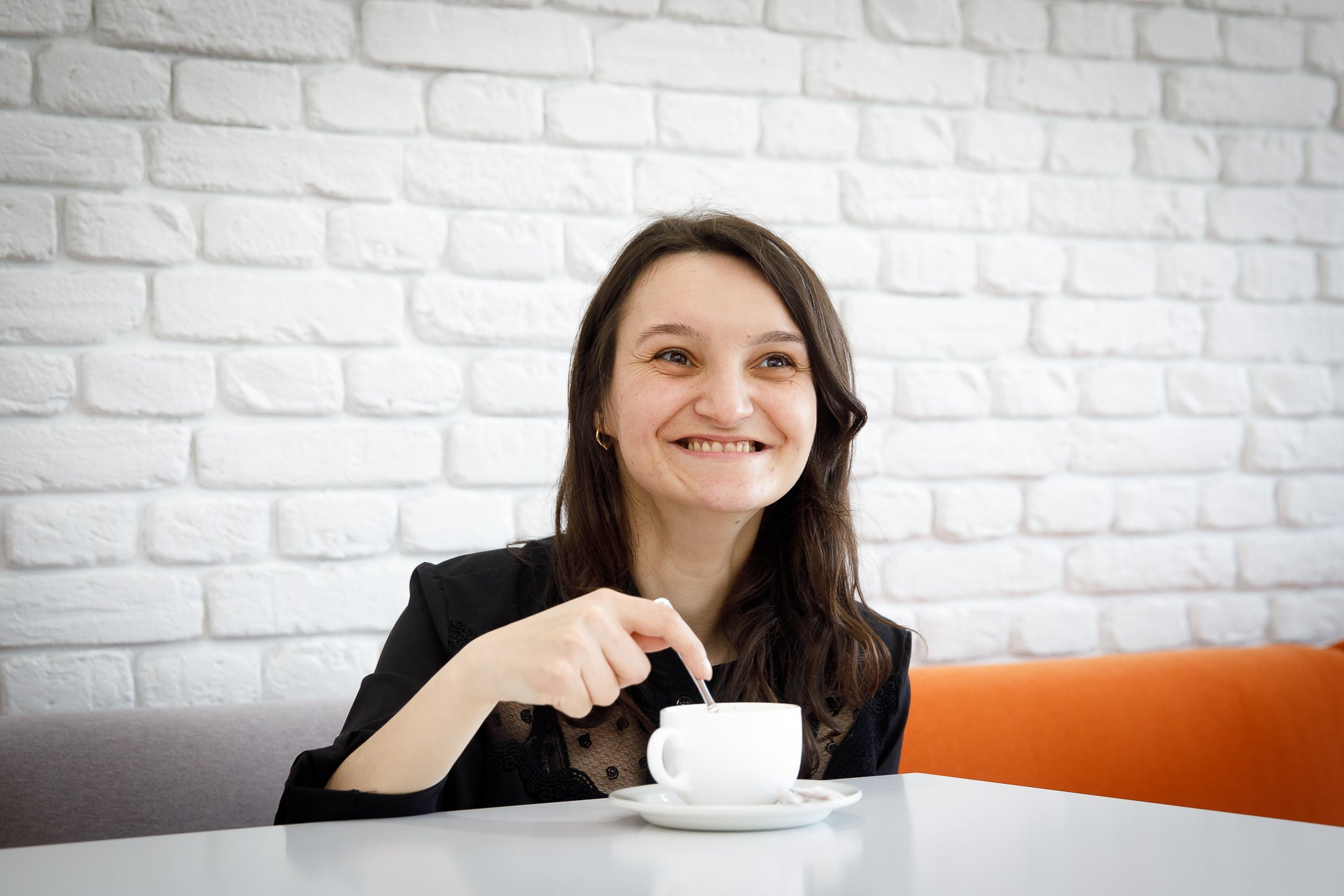
Mariana Arsene, 27 years old, grew up in Ciuciuleni village, west of Chisinau. She has a speech impairment and a movement disability, although she does not need a wheelchair. She started to experience discrimination from an early age.
“The state differentiates children with disabilities both at kindergarten and at school and children encounter various barriers,“ she said. “As I had speech difficulties, my classmates needed some time to get used to me. Some of them tried to make inappropriate jokes in certain situations, but after a while they stopped.”
She works as a Customer Operations Agent at Orange in Chisinau. Fortunately, her teachers did not stigmatize or stereotype her.
“My teachers stood by my side,” she said. “They encouraged me and offered support. I didn’t always manage to overcome the challenges, but my goal was to try, to push my limits, both physical and verbal.”
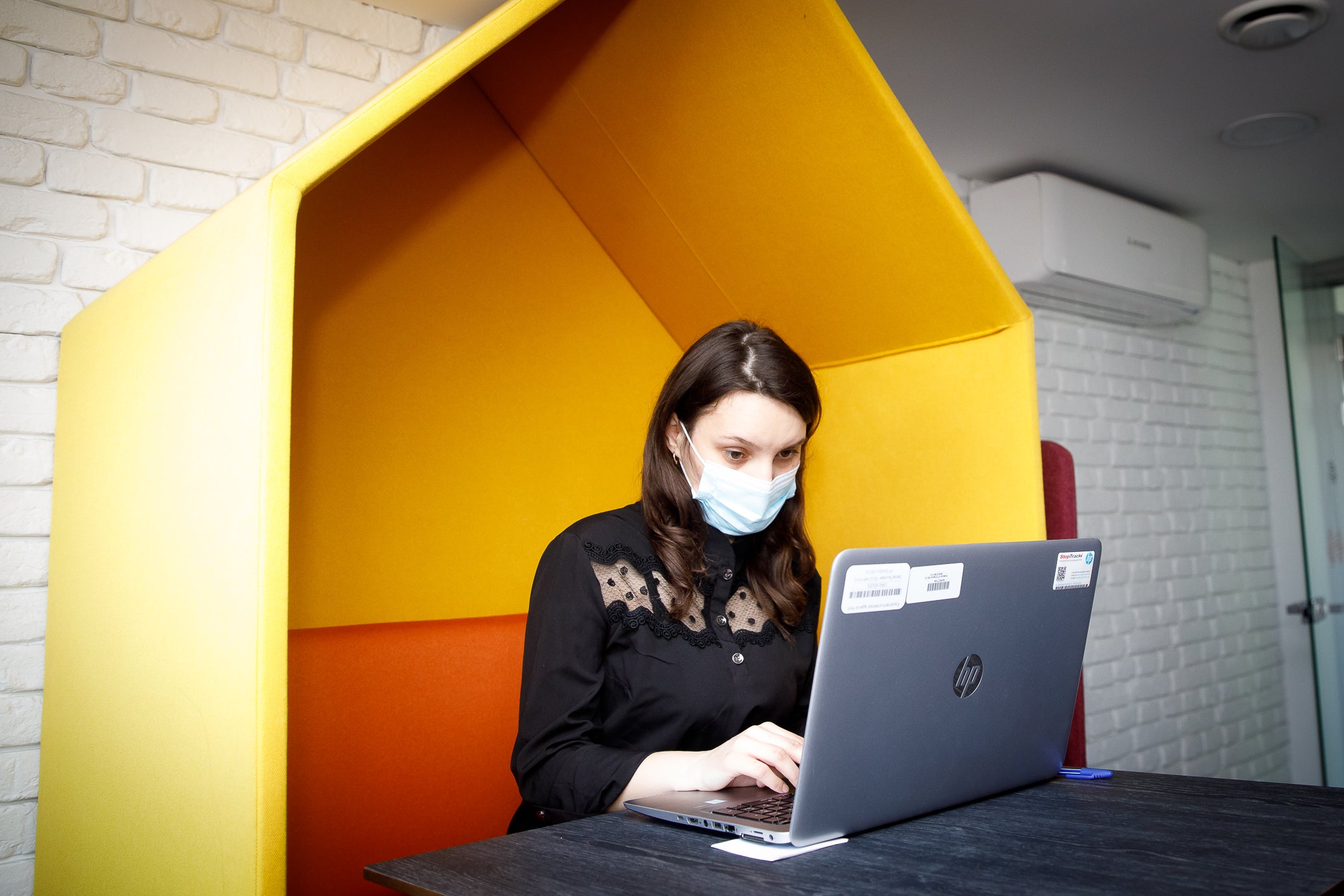
However, after completing a bachelor’s degree in communication technology and a master’s in psychology, Mariana found that discrimination followed her as she tried to enter the labour market.
“After graduation, when I started looking for a job, the real challenges emerged,” she said. “Whenever I attended a job interview, the employers made various excuses that the job was not suitable for me, that other employees would not agree to work with a person with special needs like me. Once, I called a company to check that I met their requirements. They noticed my speech problem and told me that the position was already taken. However, when a friend called the company five minutes later, they were very open to her and set up an interview. It is clear that this was discriminatory towards me – a person with disabilities.”
Mariana believes that many people misinterpret disability.
“We have to admit that there are many social inclusion shortcomings in our country,” she said. “I think that people with disabilities in Moldova struggle a lot in the workplace. Some people still have stereotypes. They often associate disability with a lack of intellectual skills. I have met people who believe that those living with disabilities should stay at home, that we can’t work, that we are not useful for society.”
Fortunately, her current employer is positive about employing people with disabilities.
“I was surprised,” she said. “As an employee with special needs, I benefit from a shorter working week.”
In Moldova, people living with a disability have the right to work six hours per day instead of the standard eight.
“Like any other employee, I benefit from training, a free mobile package, health insurance, performance bonus, lunch vouchers, and during the pandemic, remote working.”
Mariana is adamant that, given the right circumstances, people living with disabilities can integrate into the workplace.
“People with disabilities can be successfully integrated into the labour market if there is an accessible and favourable environment,” she said. “Our rights count. Nobody provides them unless we ask. Nobody respects them unless we want it. Nobody offers them to us unless we prove their necessity. Of course, it is important to be supported!”
Karine, Armenia
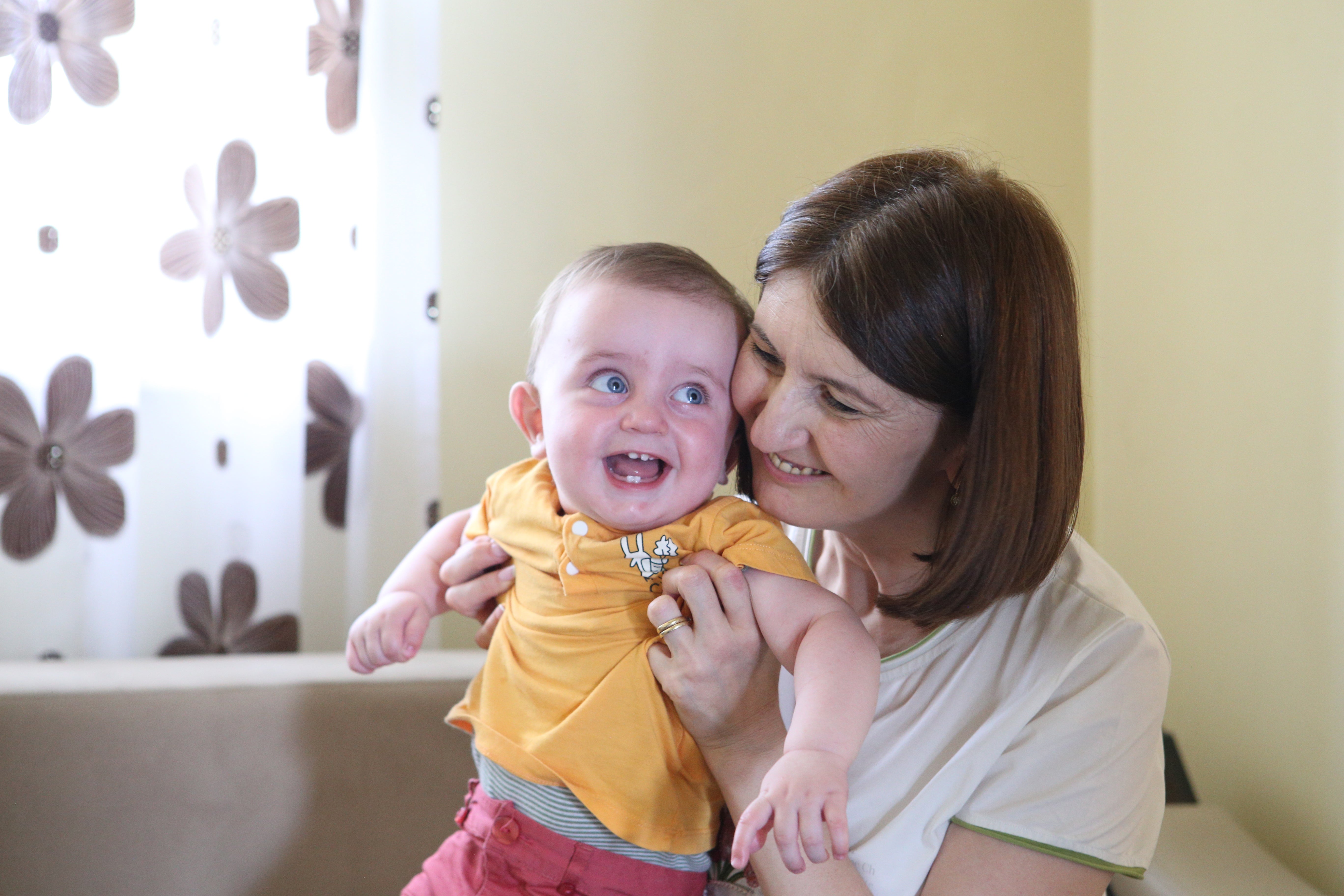
“Have you come to be sterilized?” the doctor asked Karine. “No,” she said. “The opposite.”
Karine Grigoryan, from Armenia, was 40 years old, recently married and wanted to start a family.
“I dreamt of having a child and I realized that I didn’t have much time. I decided not to wait," she said. "I visited a provider of reproductive and family planning services to start in-vitro fertilization.”
That’s when the doctor asked about sterilization.
“Many doctors don't know that not all disabilities are passed on genetically,” she said. “I knew my disability would not be passed on to my child, and I knew that nobody can tell me whether I should or should not have a child.”
“However, I wonder how many women with disabilities decide not to have children because of doctors like that.”
“Everyone was saying that, at a mature age and with a disability, having a child will be a risk for life,” Karine said. “But, I had a perfect pregnancy. Every month I would go and have my regular check-up and many people I knew were surprised that I was going through pregnancy so lightly. Seeing me at the hospital being so positive and optimistic, and also seeing that my child did not have any disability also surprised them very much.”
Like any family, the arrival of a child meant many changes in her life.
“Little by little I started changing my daily schedule,” she said. “I work when my child is asleep. Fortunately, I live in a big Armenian family and my mother and sister help me. My office is close by, so I can just run to the office and work until night-time when the baby is sleeping.”
Karine was already a campaigner for people living with disabilities. Inspired by a course she attended in Oregon in 2007, she became a civil society activist and founded Agate, a non-governmental organization with a mission to unite women with disabilities in Armenia. However, she was surprised how becoming a mother herself empowered other women living with disabilities.
“In the past, I tried to empower women with disabilities by saying: you have a right to love and to be loved, you have a right to become mothers,” she said. “But, the example I set in my own life proved to be much stronger than my words.”
“I wondered how many women with disabilities - who are not well-informed - back down on their decision to have a child because of such doctors,” she said. “No-one can tell us whether we should or should not have a child.”
Today, Karine continues to campaign to empower women living with disabilities so that they can overcome stigmas and stereotypes and start families of their own.
“I have spoken to many healthcare providers at reproductive health centres and changed their opinion about women with disabilities,” Karine said. “Stereotypes against people with disabilities put us in a box as if for our whole life we have to prove that we are able.”
Iuliana, Moldova
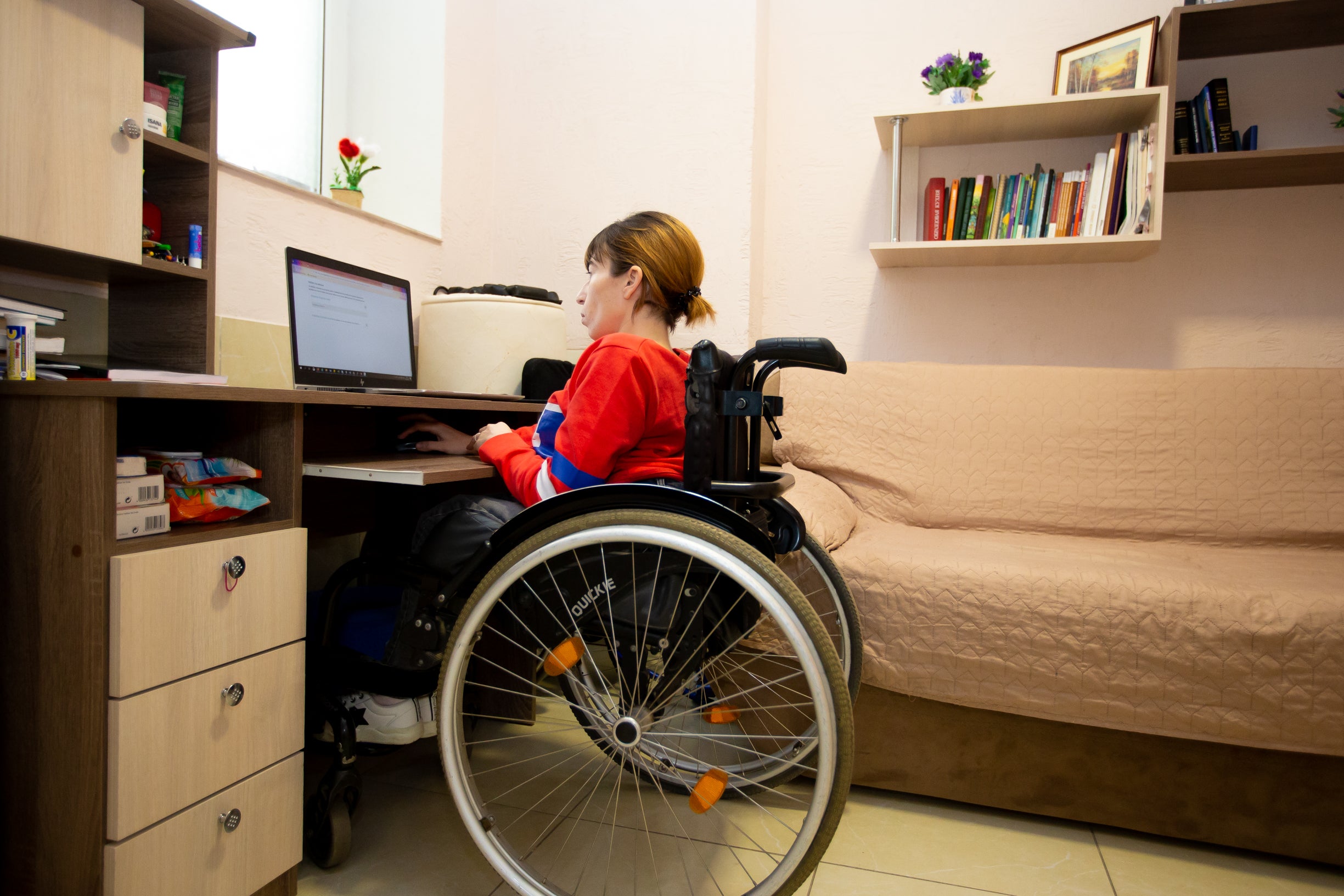
Anna, Georgia
